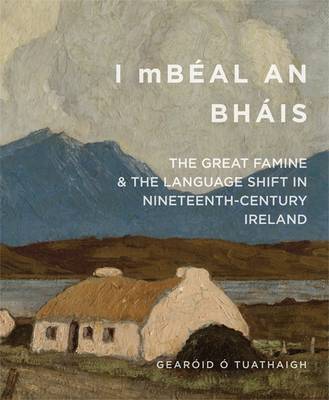Ireland's Great Hunger Museum at Quinnipiac University publishes Famine Folios, a unique resource for students, scholars and researchers, as well as general readers, covering many aspects of the Famine in Ireland from 1845-1852 - the worst demographic catastrophe of nineteenth-century Europe. The essays are interdisciplinary in nature, and make available new research in Famine studies by internationally established scholars in history, art history, cultural theory, philosophy, media history, political economy, literature and music. The catastrophe of Great Irish Famine of 1845-51 is a major watershed in Irish history, with a decisive impact on many aspects of Irish demographic, economic, social and political history. It played a crucial role in shaping the memory and identity of the Irish diaspora, notably in north America and Britain. It is also credited with effecting enduring changes in Irish cultural life.Perhaps the most profound cultural change in modern Irish history has been the replacement of Irish by English as the main vernacular of the general population in the centuries since the conquest of Ireland in the sixteenth century.It is a complex story, but the massive impact of the Famine (mortality and emigration) on the later phase of this language change demands precise analysis.
Based on the author's own work and taking account of recent studies of the language change, this Folio examines closely explanations and interpretations of this change of vernacular - over the long term and in its nineteenth-century setting - with a firm focus on the role of the Great Famine in this episode of fundamental cultural transformation
- ISBN10 0990468674
- ISBN13 9780990468677
- Publish Date 30 November 2015
- Publish Status Active
- Publish Country US
- Imprint Quinnipiac University Press
- Format Paperback
- Pages 52
- Language English
- URL http://corkuniversitypress.com/The-Great-Famine-and-the-Language-Shift-p/9780990468677.htm
